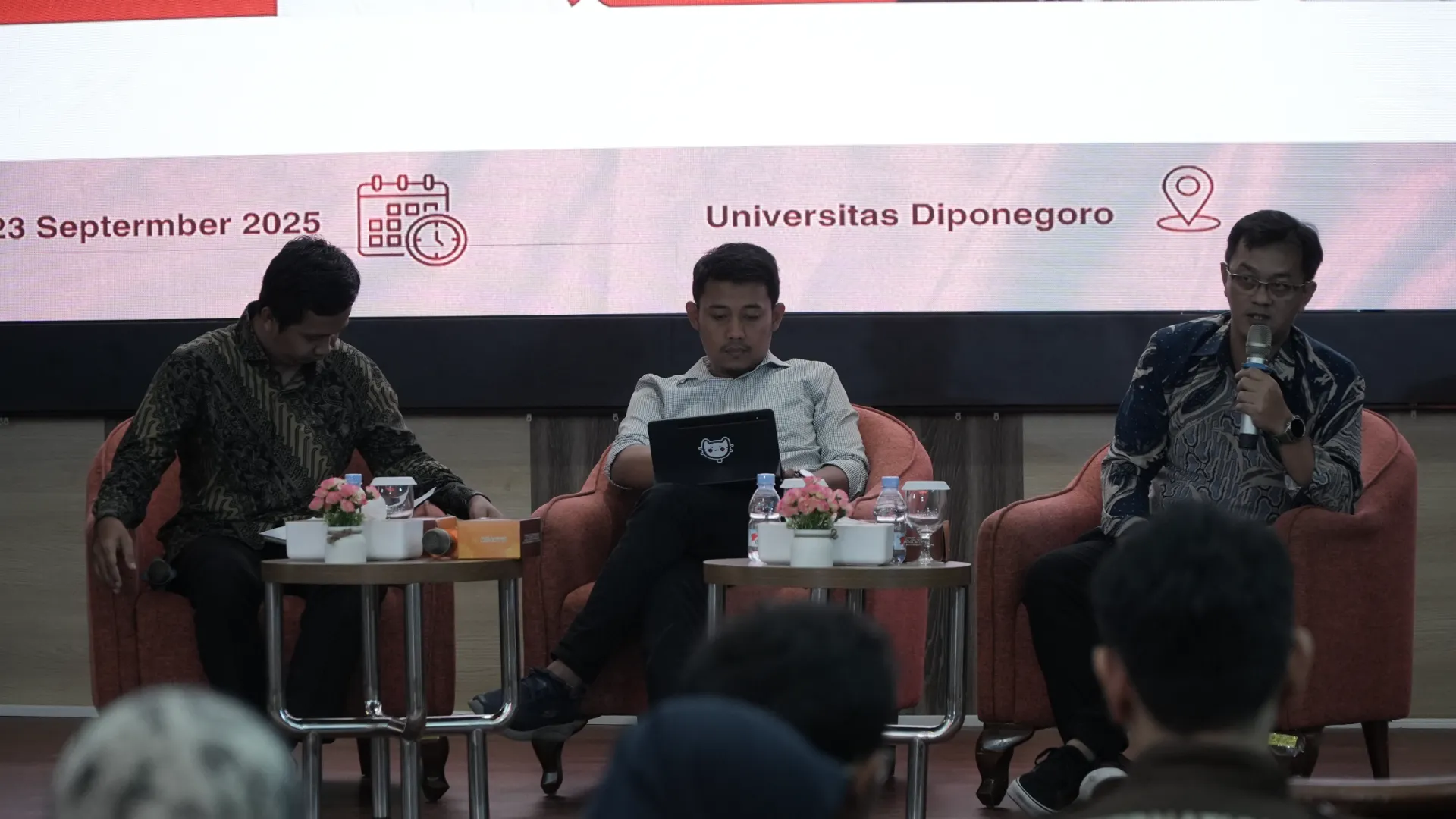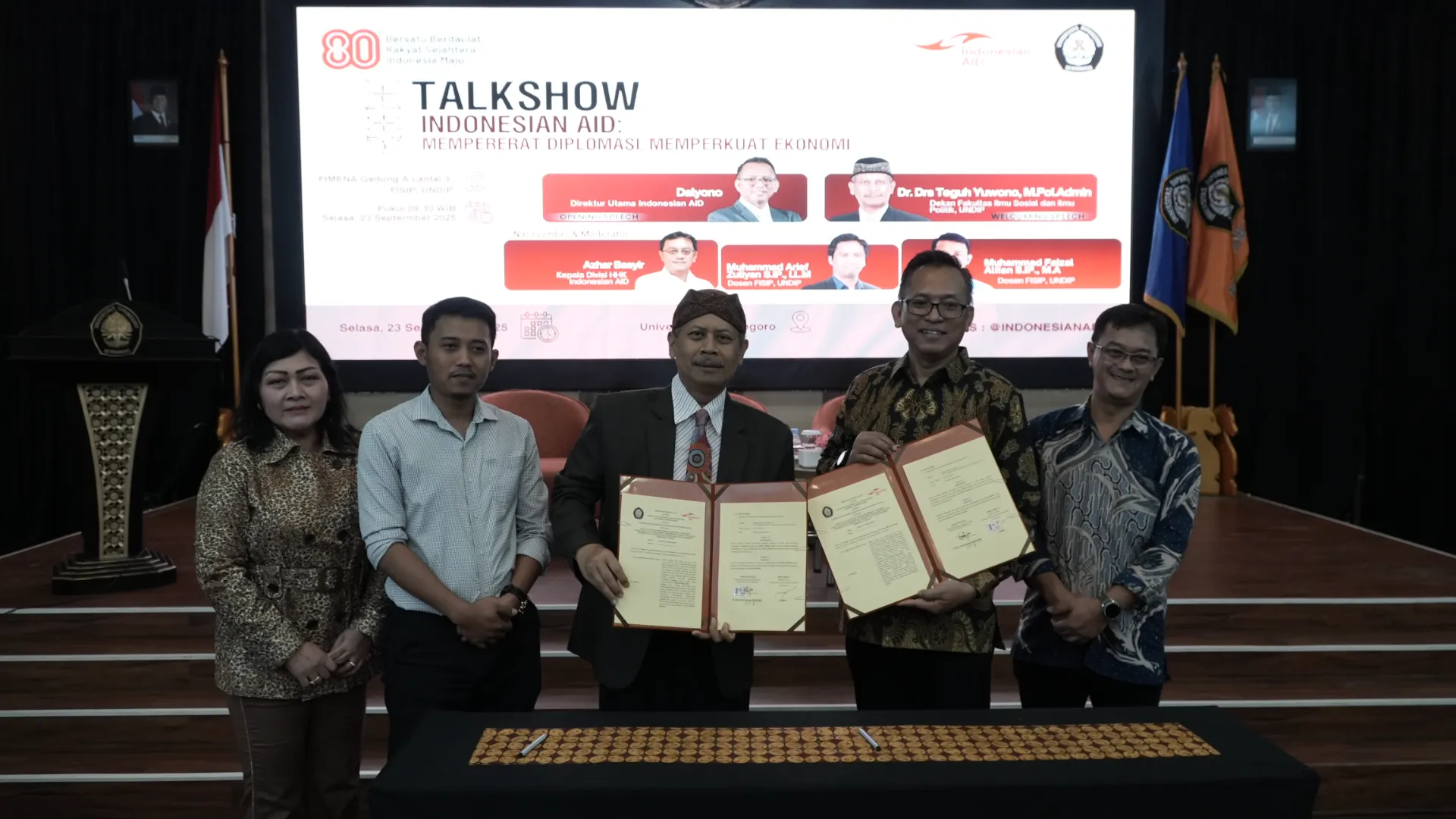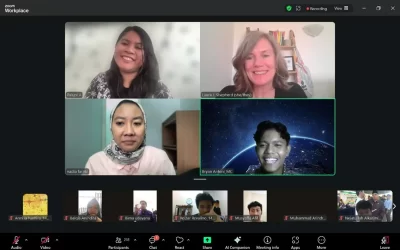Semarang, September 23, 2025 – The Faculty of Social and Political Sciences (FISIP) of Diponegoro University, in collaboration with Indonesian AID, successfully held a talkshow titled “Indonesian AID: Strengthening Diplomacy, Strengthening the Economy.” The event took place in the FIMENA Room, 3rd floor, Building A, FISIP, Diponegoro University. The event featured a talkshow of academics and practitioners discussing the strategic role of AID Indonesia in strengthening Indonesian diplomacy through foreign aid mechanisms.
The event opened with various keynote addresses from Dr. Drs. Teguh Yuwono, M.Pol.Admin, Dean of FISIP UNDIP, and Mr. Dalyono, President Director of AID Indonesia. In their speeches, both highlighted increasingly complex global challenges, ranging from the potential for economic and financial deglobalization, the imposition of unilateral tariffs, to unilateral sanctions that impact the stability of international trade. Both also emphasized that although the target of achieving the SDGs by 2050 has been set, economic obstacles remain a significant factor that needs to be anticipated.
The main session featured Mr. Azhar Basyir, Head of the Law and Institution relations Division of Indonesian AID. He emphasized three key points regarding the role of Indonesian AID. First, the fundamental reasons why Indonesia needs to provide foreign grants. Second, Indonesian AID’s position as the sole official channel for international grants that directly support national interests. Third, the history of Indonesian AID’s formation, which began during the second term of President Joko Widodo’s administration. Azhar added that the grants provided not only consist of funds but also strategic partnerships, such as involvement with the non state actors in hospital construction and other cross-border programs.

From the academic perspective, Muhammad Faizal Alfian, S.IP., M.A., a lecturer at the Faculty of Social and Political Sciences at Diponegoro University (UNDIP), presented the material using the perspective of International Development on Cooperation (IDP). He encouraged participants to view the role of grants not only from the perspective of donor and recipient countries, but also from the perspective of government institutions and other international actors.
Meanwhile, Muhammad Arief Zuliyan, S.IP., LL.M., as moderator of the event, also highlighted critical questions regarding the future of Indonesian AID, particularly regarding green diplomacy. He asked to what extent Indonesian AID could accommodate environmental sustainability issues in its grant diplomacy practices. In response, Indonesian AID stated that the sustainability aspect is still under review, given that the institution is only five years old.
The event was enthusiastically attended by international relations students and academics, and is expected to provide new insights into Indonesian development diplomacy. Indonesian AID was emphasized not only as a soft power instrument but also as a means of strengthening Indonesia’s position in the international economic and political arena.






0 Comments